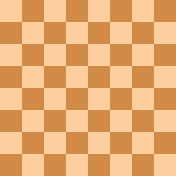
- Chess World Cup
- FIDE Grand Prix
- Olympiad
- World Championship
- List of strong tournaments
- List of world championships

- Checkmate patterns
- Chess openings
- Chess strategy
- Chess tactics
- Chess theory
- Endgames
- Pawn structure
- Problems/Compositions












|
|||||||||||||||||||||||||||||||||||||||||||||
| Moves | 1.e4 c5 2.Nf3 Nc6 3.d4 cxd4 4.Nxd4 g6 | ||||||||||||||||||||||||||||||||||||||||||||
|---|---|---|---|---|---|---|---|---|---|---|---|---|---|---|---|---|---|---|---|---|---|---|---|---|---|---|---|---|---|---|---|---|---|---|---|---|---|---|---|---|---|---|---|---|---|
| ECO | B34-B39 | ||||||||||||||||||||||||||||||||||||||||||||
| Parent | Open Sicilian | ||||||||||||||||||||||||||||||||||||||||||||
| Synonym(s) | Accelerated Fianchetto | ||||||||||||||||||||||||||||||||||||||||||||
The Accelerated Dragon (or Accelerated Fianchetto) is a chess opening variation of the Sicilian Defence that begins with the moves:
The Accelerated Dragon features an early g6 by Black. An important difference between this line and the Dragon is that Black avoids playing d7-d6, so that he can later play d7-d5 in one move, if possible. Black also avoids the Yugoslav Attack, but since White has not been forced to play Nc3 yet, 5.c4 (the Maróczy Bind) is possible.
The Accelerated Dragon generally features a more positional style of play than many other variations of the Sicilian.
| a | b | c | d | e | f | g | h | ||
| 8 |

                              |
8 | |||||||
| 7 | 7 | ||||||||
| 6 | 6 | ||||||||
| 5 | 5 | ||||||||
| 4 | 4 | ||||||||
| 3 | 3 | ||||||||
| 2 | 2 | ||||||||
| 1 | 1 | ||||||||
| a | b | c | d | e | f | g | h | ||
One of the main lines continues: 5. Nc3 Bg7 6. Be3 Nf6 7. Bc4 (see diagram). At this point the most important Black continuations are 7...0-0 and 7...Qa5. White should not castle queenside after 7...Qa5, unlike in the Yugoslav Attack.
7... 0-0 is the main line, after which White should proceed with 8. Bb3. If Black plays 8...d6, White usually plays 9.f3 as in the Yugoslav attack. Although, Black often plays 8...a5 or 8...Qa5, after which castling queenside can be dangerous, and it is often a better idea for White to castle kingside.
| a | b | c | d | e | f | g | h | ||
| 8 |

                          |
8 | |||||||
| 7 | 7 | ||||||||
| 6 | 6 | ||||||||
| 5 | 5 | ||||||||
| 4 | 4 | ||||||||
| 3 | 3 | ||||||||
| 2 | 2 | ||||||||
| 1 | 1 | ||||||||
| a | b | c | d | e | f | g | h | ||
Another common line that has been seen in tournaments continues: 5. Nxc6 bxc6 6. Qd4 Nf6 7. e5 Ng8 8. e6 Nf6 9. exf7 Kxf7 (see diagram). At this point both sides have equal chances. Many times the continuation 10.Bc4+ will be seen, attempting to add kingside pressure while developing a minor piece. However, Black defends easily with 10...d5 or 10...e6, resulting in a position where his king is safe. Both players can choose to play the game positionally or otherwise will have variable results. Statistically, White's best move is 10.Be2 followed with 11.0-0.